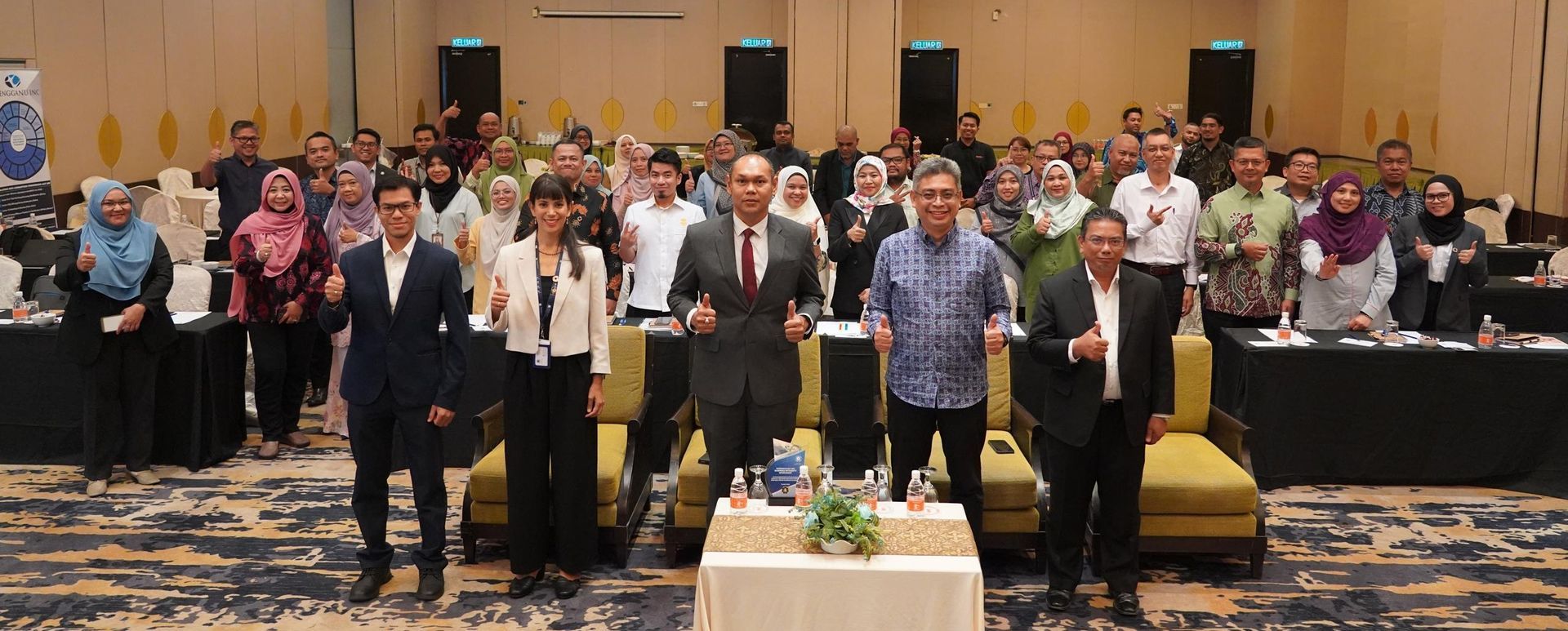For many, the workshops and tools provided were a wake-up call. As Ms. Fairuz Abdul Ghafir, a Atas Aeronautik Sdn Bhd manager, shared: “Purchasing aircraft parts, maintenance and related activities involve millions of ringgit — it’s not a small business. The transparency of the entire process, including systematic reviews, was something today’s workshop helped us understand better. It’s definitely something we must implement in our organization.”
Malaysia’s Business Community Unites to Tackle Corruption in Supply Chains
Supply chain corruption not only increases the cost of doing business, it erodes trust, weakens governance and threatens Malaysia’s global competitiveness. With trade partners like the European Union and Japan maintaining strict anti-corruption enforcement, businesses operating in or with Malaysia must meet rising expectations for transparency and integrity, or risk being left behind.
Corruption in supply chains often plays out in subtle but damaging ways. In some cases, some large corporations exploit their power over small and medium-sized (SME) suppliers by demanding bribes or kickbacks, in exchange for securing or renewing contracts, taking advantage of the power imbalance in the relationship. Conversely, some SME suppliers admit to offering bribes as a supposed “competitive advantage,” believing that if they don’t play along, because “everyone else is doing it” they risk losing business opportunities altogether.
When Malaysia’s corporate liability law—Section 17A of the Malaysian Anti-Corruption Commission (MACC) Act—came into force in June 2020, it marked a turning point for the country’s business landscape. The law introduced corporate liability for corruption committed by employees and associates, placing significant pressure on companies to show that they had ‘adequate procedures’ in place to prevent and address misconduct.
For many businesses, particularly SMEs, this shift brought uncertainty and risk. With limited resources, little awareness, and increasing client demands, SMEs were especially vulnerable to non-compliance, facing the threat of multimillion-ringgit fines or even imprisonment.
In response to these urgent needs, the Anti-Corruption Collective Action (ACCA) initiative, led by Global Compact Network Malaysia & Brunei, was launched to help companies meet these new legal and ethical expectations head-on. The initiative set out with a clear purpose: to empower businesses, especially those most at risk, with the tools, knowledge, and support needed to navigate this complex new environment.
Between 2022 and 2024, the initiative rolled out a hands-on program designed not just to raise awareness, but to empower. Working side by side with corporate procurement managers, the ACCA team developed tools and training sessions tailored for SMEs in supply chains. One of the standout resources was a dedicated anti-corruption e-learning course—easy to access, practical and specifically built with SMEs in mind. Corporations played a key role in promoting the course to their suppliers, helping it reach those who might otherwise be overlooked.
The results exceeded expectations. More than 500 participants were trained, over three times the original target. But numbers alone don’t tell the whole story. The initiative fostered real change: building skills, encouraging dialogue and positioning participating companies as leaders in the fight for supply chain integrity.
Workshops and peer learning sessions became spaces where companies could exchange ideas and find common ground. To capture these lessons, the team published
Anti-Corruption: Implementing TRUST Principles for Business Integrity Competence. This flagship report, produced in collaboration with Monash University and Network Malaysia & Brunei, showcased four powerful case studies. Based on in-depth interviews with CEOs and compliance officers, it offered a rare insider look at how different companies built their anti-corruption frameworks in line with the new law, providing a roadmap for others ready to take on the challenge.

The initiative strongly emphasised supporting SMEs, often the most vulnerable links in the supply chain. By offering materials in both Bahasa Malaysia and English and highlighting examples of peers implementing change, the ACCA initiative empowered suppliers to take ownership of anti-corruption practices.
In Malaysia, the fight against corruption isn’t being waged alone—it’s being led by businesses that believe that integrity, when built collectively, can become a defining strength.



